A Rose by Any Other Name
If a rose by any other name would still smell so sweet, would a Ford Fusion by any other name still be a front-wheel-drive economy car? Lincoln certainly hopes not. It wants its upscale customers to view the new Zephyr as a discrete model, rather than a gussied-up Ford Fusion. Mercury harbors similar hopes/delusions for its Fusion-with-frills, the Milan. Come to think of it, the Fusion is based on the [Ford-owned] Mazda 6, whose price overlaps both the Fusion and the Milan. I suppose the answer to the conundrum posed by the incredible sameness of automotive being depends entirely on the customer's ability to smell a rat.
Fifty or sixty years ago, car buyers were easily fooled by re-badged vehicles. And even if they weren't, it didn't matter. The Big Three bestrode the US car market like a colossus. Even casual pistonheads could name every single car for sale. Auto brands were stronger than superglue. Driving a Ford, Lincoln or Mercury meant something; your car's sheet metal and badge reflected and projected your personal status. Customers who knew that their fancy new Lincoln was actually a Ford in a zoot suit didn't really care– as long as they got a good car that earned appropriate props. Brand loyalty was king.
Today, over forty major car brands produce a range of models whose aggregate is well into triple digits. Brand-related social demarcations still exist, but the lines are blurrier than a college student's Sunday morning memory. Mercedes sells low-end product, while Hyundai make an entirely convincing upmarket homonym. What's more, new models debut and disappear in a matter of months, while longer running favorites undergo dramatic restyles with increasing frequency. "Niche marketing"– creating a genre-killing product for a limited audience– is king.
Ford, GM and DCX act as if 'niche' means 'superficial.' They believe that adspin and blingery obviate the obvious long-term advantages of selling clearly delineated products with focus and depth. A Lincoln dealer recently confided to the Detroit News that he "wished the company wasn't so forthcoming about platform sharing.' Sorry; in these days of Edmunds.com and kbb.com, customers' noses are highly attuned to the slightest whiff of duplicate duplicity. Trying to palm off a Ford as a 'proper' Lincoln simply by adding some bits and pieces– a new grill and rear bumper, extra sound deadening, a softer suspension, wood, new gauges, fancy ICE and silver-effect switchgear– isn't just cynical, it's stupid. Badge engineering is fooling fewer and fewer people more and more of the time.
While the cost-savings offered by the kind of five-minute makeover described above cannot be underestimated, the damage to the car brand perpetuating the platform perfidy cannot be overestimated. If a car brand becomes known for mixing its genes with lesser machines and flogging the result at a premium (i.e. inflated) price, the road to rep recovery is both long and uncertain. Just ask Cadillac– if and when they complete their thirty year wander through the wilderness. As Caddy's ongoing recovery illustrates, even after you throw the badge engineering monkey off your back, you may still have to wait until your old customer base dies off.
Lincoln should know better. It was once one of the world's most exclusive brands. Ironically enough, the company was started by Cadillac's co-founder, Henry M. Leland. Ironically squared, Lincoln's tumble from the top began with… the Lincoln Zephyr. While the 1936 Zephyr helped the brand climb out of the depression, Lincoln's success came at the expense of the brand's premier positioning. No surprise, then, that the Zephyr was eventually canned in 1942 in favor of the similarly-priced, new-to-the-market Mercury, which was derived from a Ford chassis. Rather than carefully cultivating the loyalty of a critical cadre of brand faithful, Ford sold out Lincoln's image to cash in on badge engineering's 'easy money.'
In fact, if you're looking for the hidden force pulling GM and Ford into their respective black holes, badge engineering is it. Well, that and brand bingeing. (DCX' relative restraint in both areas accounts for its relative health.) The two forces have combined to suck the life blood out of the companies' products, until all their brands and all their cars are all pretty much of a muchness. When in-house brands are homogenous, shopping elsewhere becomes just as easy as (and more interesting than) trying to share the salesman's enthusiasm for an invidious distinction.
There's only one solution to this mess: lop off the unsustainable overlaps (Mercury, Buick, Jaguar, etc.), and then build brand-specific vehicles that share platforms and nothing else. Screw economy of scale. Customers want products with genuine individuality and integrity in every aspect, from body style to the interior to engineering. In fact, that's all they've ever wanted, no matter what you call it.
More by Robert Farago
Latest Car Reviews
Read moreLatest Product Reviews
Read moreRecent Comments
- Dwford There's plenty of time between now and 2030-35 to design and sell through a whole new generation of ICE vehicles, if not 2 generations. Chevy seems to be on a dual track plan with ICE and EV versions of the Equinox and Blazer nameplates. No reason Cadillac can't do something similar.
- Kwik_Shift_Pro4X Poop or get off the pot.
- TheMrFreeze The wife unit and I refuse to buy a white/black/grey/silver car...life's too short for boring. As it happens we both drive orange cars right now but slightly different shades. Total coincidence, just happened that the used cars we found that met our requirements (ie: manual trans and at least some amount of character) both happened to be orange. My previous daily driver was orange as well, again total coincidence...they just seem to find us I guess...
- Marcus36 In other words...."WE have no idea what we are doing"
- Donald This is what happens when you make your wife CFO. This is all the result of accounting problems. And could’ve been avoided with a reserve of liquidy.



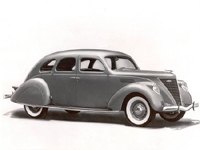















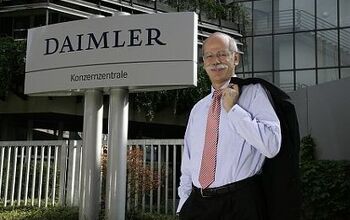
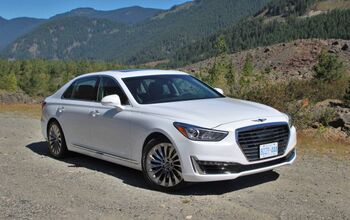
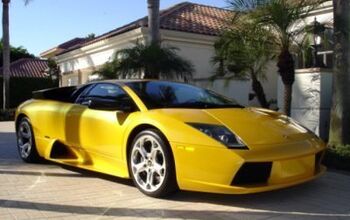
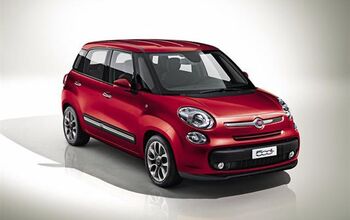
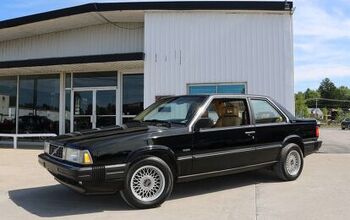





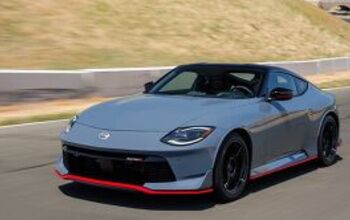



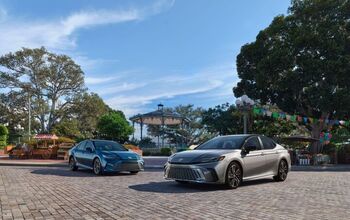
Comments
Join the conversation